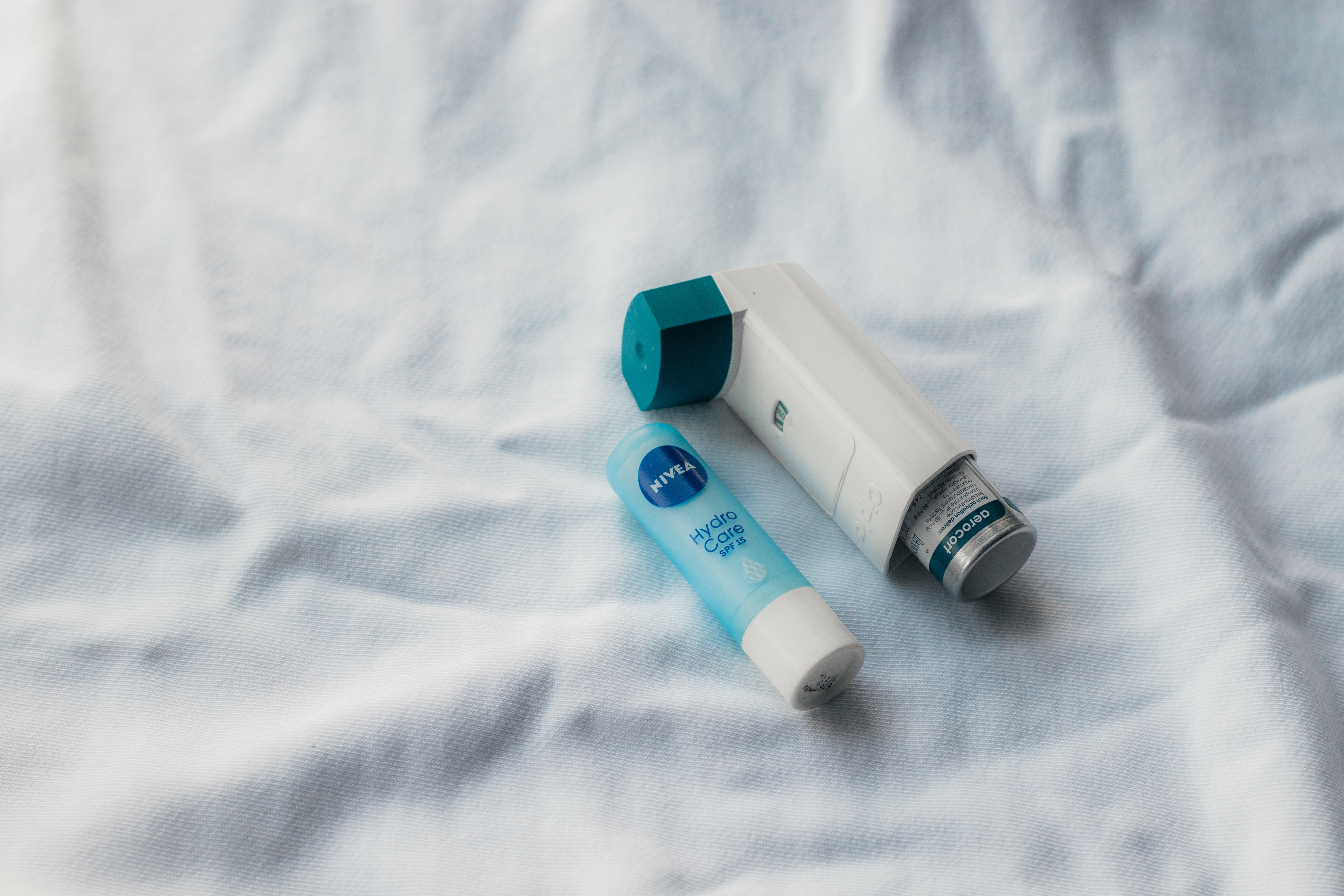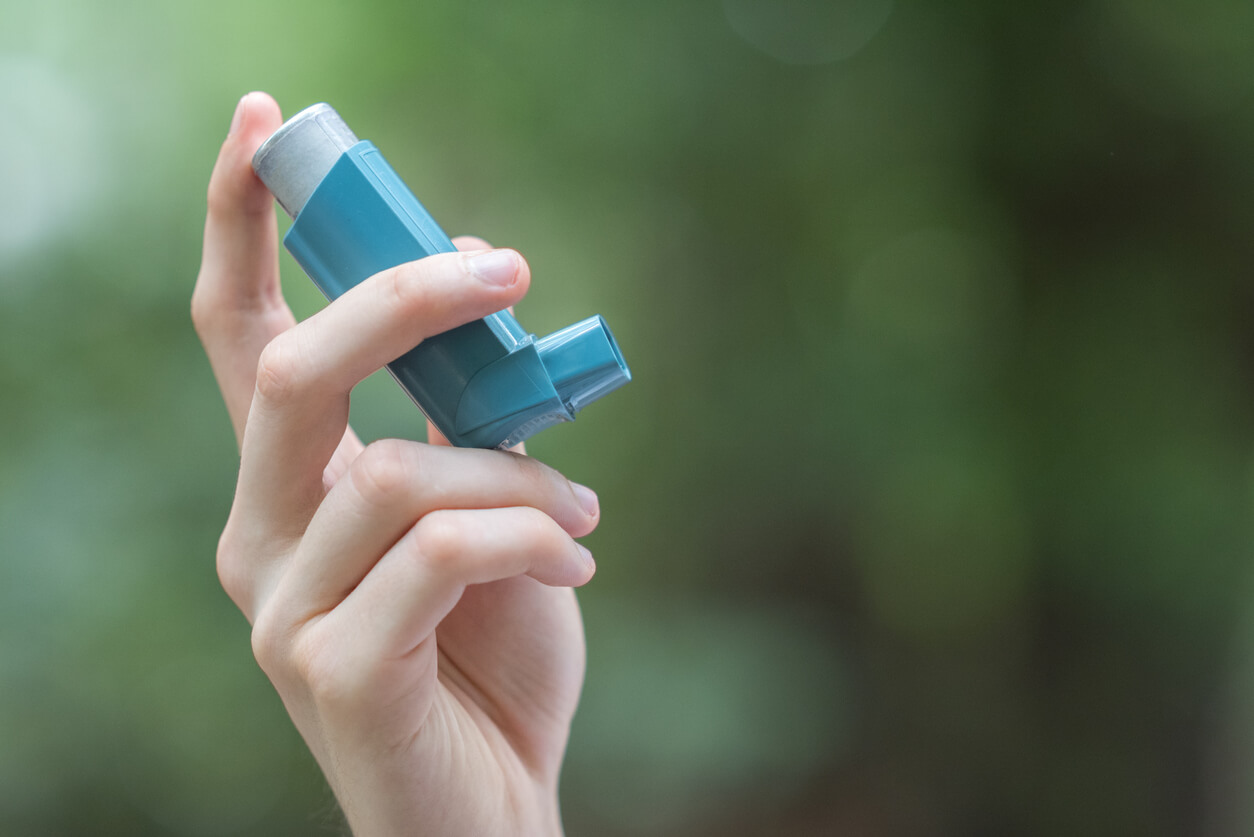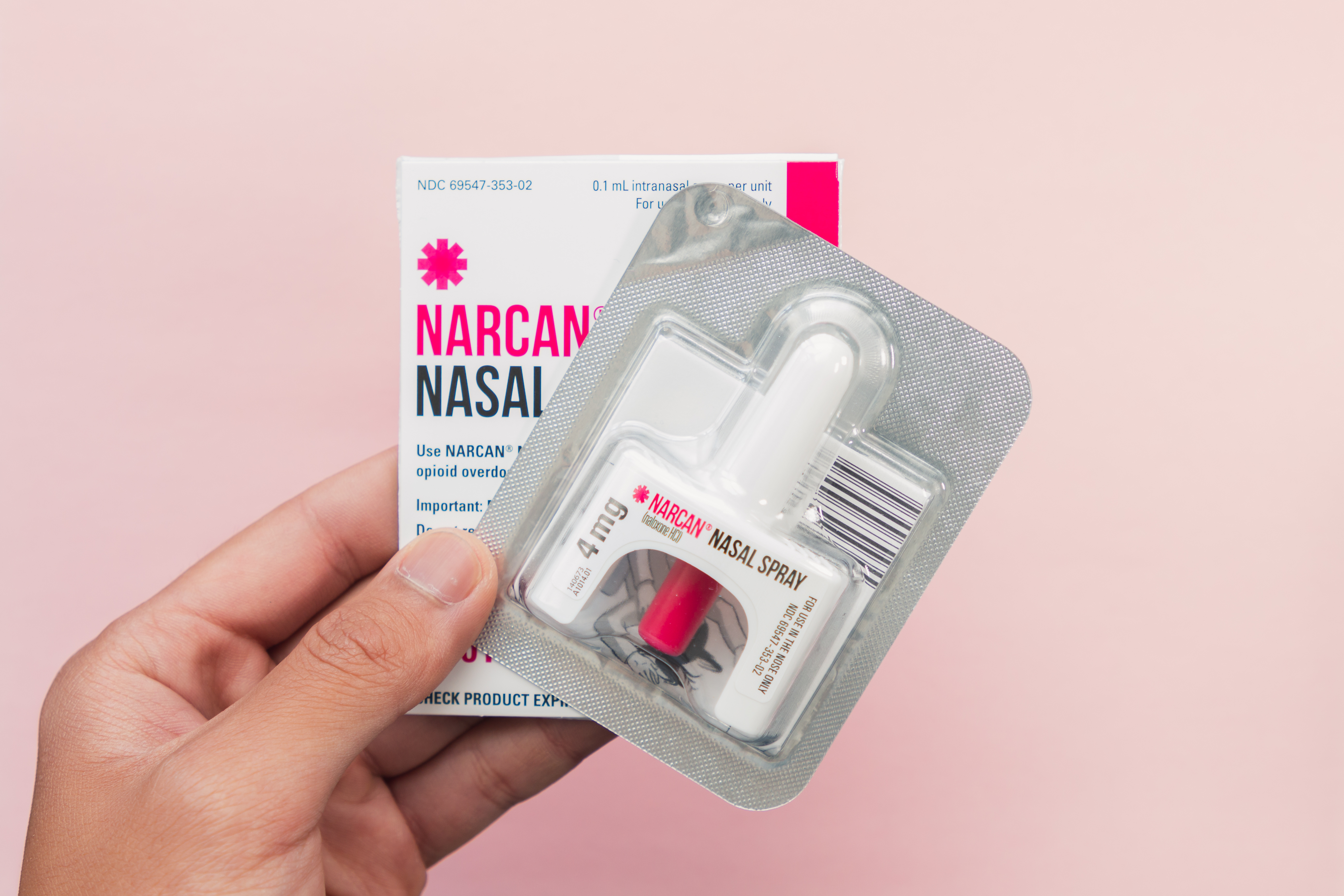Over-the-Counter Asthma Inhalers: Treatment Options for Asthma
Understanding your best treatment options for asthma symptoms including OTC and prescription medication
Inhalers are the cornerstone of asthma care. Most people with asthma will tell you that they take these little devices everywhere they go. Inhalers prevent asthma attacks while helping relieve asthma symptoms as they occur.
Inhalers are also expensive. The cost of prescription inhalers is rising. This has left many patients looking for cheaper over-the-counter (OTC) options. But do these non-prescription asthma medications work?
Can I buy asthma inhalers over the counter?
Yes. There are a few asthma inhalers available over the counter. However, these inhalers come with warnings about the harmful side effects they can cause.
Types of over-the-counter inhalers
Albuterol is in most prescription inhalers. It is only available with a prescription from a licensed healthcare provider. You cannot buy albuterol over the counter.
Only two inhalers have been approved by the Food and Drug Administration (FDA) for purchase over the counter. Neither of these drugs will prevent asthma attacks, nor should they be used as long-term treatment options for asthma.
Primatene Mist
Primatene Mist is an FDA-approved inhaler. It is used to briefly relieve asthma symptoms. These symptoms include shortness of breath and chest tightness. It contains the active ingredient epinephrine. Epinephrine is also known as adrenaline.
Primatene Mist is available OTC. It was taken off drugstore shelves for a while because it contained a chemical that damaged the ozone layer. It is now made with a new ingredient known as HFA that is safer for the environment.
Primatene Mist should only be used for temporary relief from symptoms of asthma. You should feel better within 20 minutes of using this medication. This OTC asthma inhaler is not FDA-approved for long-term use or for the treatment of severe asthma. It should also not be used to treat other breathing-related health conditions. These include chronic obstructive pulmonary disorder (COPD).
Asthmanefrin
Asthmanefrin contains the drug racepinephrine, which works very similarly to epinephrine. A bronchodilator, racepinephrine widens the airways to and from the lungs, making it easier to breathe. This reduces wheezing, shortness of breath, and other mild symptoms caused by asthma.
Asthmanefrin is sold in liquid form to be used with a nebulizer. A nebulizer machine will turn the liquid medication into a mist to be inhaled through a mask. Symptoms are usually relieved in 10-30 minutes. This may last for 2-3 hours.
Asthmanefrin should be inhaled one to three times every three hours to help reduce mild asthma symptoms. Because it must be inhaled through a nebulizer, this medication is less portable than Primatene Mist. Asthmanefrin should not be used for long-term asthma treatment or severe asthma.
Warnings about OTC asthma inhalers
Primatene Mist and Asthmanefrin contain the drug epinephrine. The FDA has issued a warning about harmful side effects caused by these products. Symptoms of these events include chest pain, nausea and vomiting, high blood pressure, and more. These OTC drugs carry a greater risk of side effects than prescription medications such as albuterol and levalbuterol.
Asthma patients should not replace prescription asthma medication with OTC asthma medication.
What are the common side effects of OTC asthma inhalers?
OTC inhalers have been shown to cause side effects. You should talk to your healthcare provider before starting any sort of treatment plan with OTC medication. This is because drugs may interact with past health conditions or other medications. These interactions can cause life-threatening adverse reactions.
Talk to your healthcare provider if these side effects become severe or do not go away after a few days.
Common side effects include:
- Elevated heart rate
- High blood pressure
- Chest pain
- Dizziness
- Sinus pain
- Sore throat
- Hyperactivity/ nervousness
- Trouble sleeping
- Nausea and vomiting
- Stomach ache
- Loss of appetite
Again, you should inform your healthcare provider right away if the symptoms listed above become severe or persist for more than a few days. If you have side effects like severe shortness of breath, a fast heart rate, hives, or chest pain, you should call 911 or go to an emergency room.
What are the prescription treatment options for asthma?
Prescription medication is the most effective and safest treatment of asthma symptoms. There are two types of prescription asthma inhalers: quick-relief and long-acting.
Quick-relief asthma inhalers
Quick-relief inhalers (also known as rescue inhalers) are used as needed as asthma symptoms begin to occur.
Short-acting beta-2 selective agonists used for quick relief include:
Long-acting asthma inhalers__
Long-acting inhalers control asthma by reducing inflammation and irritation in the airways. These drugs are administered every day—sometimes multiple times per day.
Long-acting asthma inhalers include:
- Fluticasone (generic Armonair)
- Fluticasone salmeterol (generic Advair)
- Budesonide formoterol (generic Symbicort)
Long-acting asthma oral medications include:
Low-cost asthma medication
Prescription asthma medications are expensive. Quick-relief inhalers are generally cheaper than long-acting inhalers. Most patients will get both a quick-relief inhaler and long-acting medication for emergencies. They will also get a long-acting inhaler for daily maintenance.
Some tips to save money on asthma prescriptions include:
Generic versions of asthma inhalers can cost 40-50% less than their brand-name counterparts. When getting a prescription, talk to your provider about opting for the generic form of a prescription drug.
Appointments on telehealth platforms (like Sesame) often cost less than seeing a provider in person (especially if you are uninsured). Talking to a provider over an online appointment like Sesame can save you money on your prescription visit, which can reduce the overall price of your asthma care. During your appointment, ask the provider you are speaking with about the cost of an asthma medication prescription. Then, you can compare that price to inhaler prices with or without insurance coverage. If you have insurance, talk to your insurance provider to determine how much an inhaler will cost out-of-pocket.
Manufacturers may offer coupons to help lower the cost of asthma inhalers. Talk to your healthcare provider about how to find coupons to save some money on your prescription.
Asthma medication is like any other consumer good; you can compare prices and shop for the best option for your needs and budget. You can always ask your provider about drug prices and how to save money on prescriptions.
What else can I do to relieve my asthma symptoms?
Asthma is a chronic condition that requires lifelong care. However, you can reduce asthma symptoms like coughing and wheezing with a few at-home measures. Note that these tips should not replace prescription asthma medication. They will not prevent or treat an asthma attack.
Some tips to soothe your symptoms include:
Use a steam inhaler: Warm, moist air can clear up mucus in the airways and soothe uncomfortable asthma symptoms. Vicks has a steam inhaler that is affordable and effective. Note that you need to keep steam inhalers clean, as warm, moist air can lead to a build-up of bacteria or fungus which can irritate asthma symptoms.
Drink herbal tea or caffeine: Caffeine is a weak bronchodilator, meaning it helps open up airways. Certain teas (like ginger, black, and eucalyptus) may soothe asthma symptoms while delivering a small dose of caffeine. Add additional ginger, lemon, or honey to further soothe the throat and airways.
Clean your house: Dust is a common trigger of asthma symptoms. Keep your living space clean by dusting and vacuuming frequently. It's recommended that you wear a mask while cleaning to avoid breathing in harsh chemicals and kicked-up dust.
Breathe: Deep breathing exercises can help control asthma symptoms. Deep breathing also helps you relax and increase lung capacity. While this isn’t a cure for asthma, these exercises can improve your lung function. Talk to your healthcare provider about deep breathing techniques and strategies.
Asthma care on Sesame
For more information about asthma care and treatment options, book an online doctor’s appointment on Sesame to discuss your condition. Providers on Sesame can offer low-cost generic medication prescriptions and other treatment plans for asthma, if appropriate.









